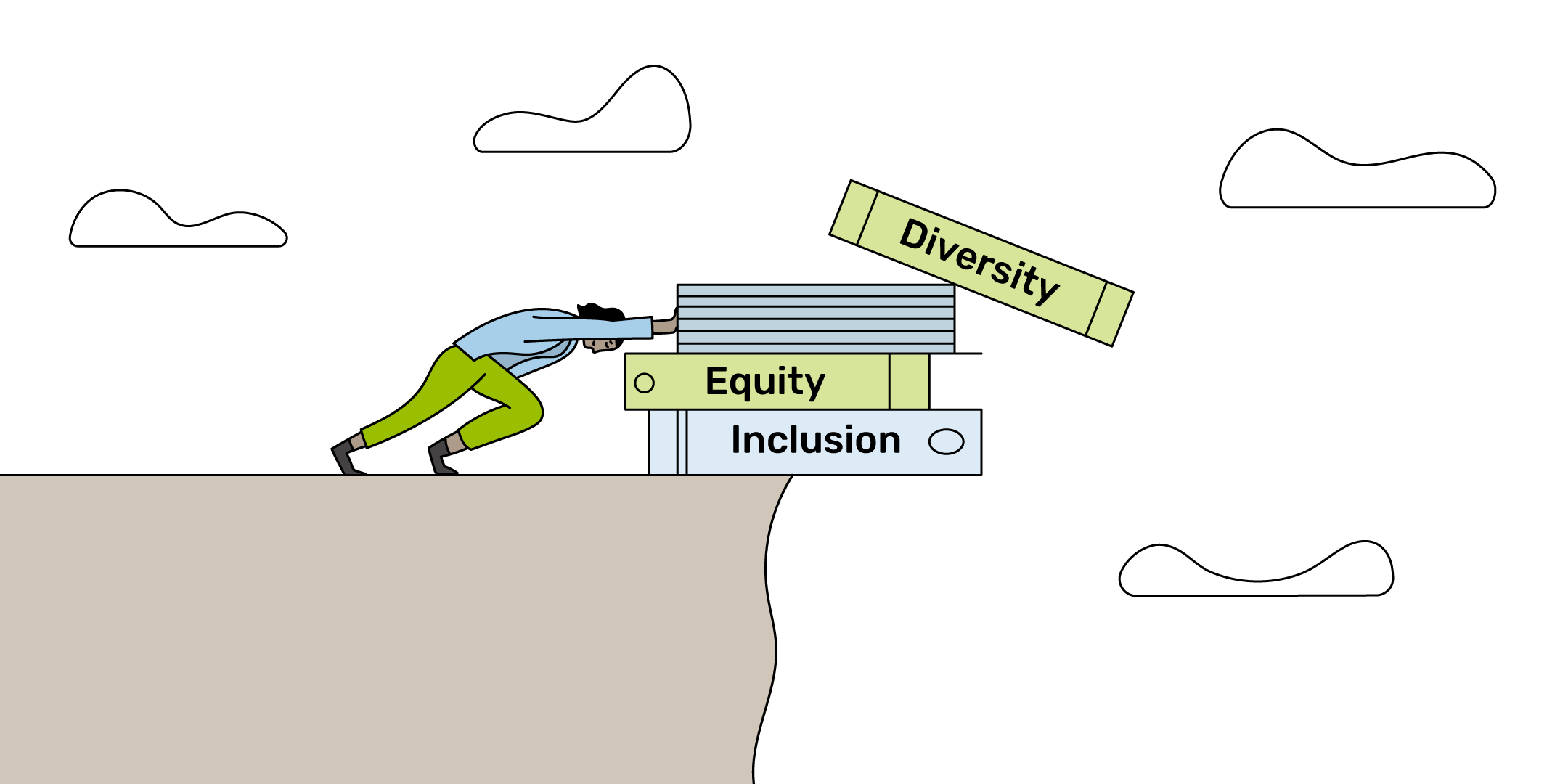Written by Mission Talent Team
Un-Learning: DEI

In the ever-evolving landscape of Diversity, Equity, and Inclusion (DEI), the recent webinar hosted by Mission Talent has shed light on the pressing need to reassess and redefine DEI strategies to better align with the unique contexts of positive impact organisations.
The session, led by Anabella and Luciano, delved into the complexities of DEI, urging organisations to move beyond traditional frameworks and embrace a more localised and well-being-focused approach.
The Call for Unlearning and Relearning DEI
The webinar kicked off with a critical observation. Despite the growing emphasis on DEI, many organisations are stuck in a cycle of frustration in the implementation and long-term results bit, primarily due to the one-size-fits-all strategies that fail to account for diverse organisational cultures and values. Anabella highlighted the necessity of “unlearning” outdated DEI concepts and adopting a fresh perspective that acknowledges the unique challenges and opportunities within each organisation.
Luciano further explained the psychological aspect of unlearning and diversity matters, emphasising the brain’s resistance to abandoning well-established neural pathways. He linked this to the DEI context, where the conventional celebration of diversity often overlooks the inherent challenges and energy demands of fostering a truly diverse environment. This revelation serves as a foundation for rethinking DEI strategies to ensure they are not only well-intentioned but also effective and sustainable.
Embracing Localization and Well-being
The webinar underscored the limitations of applying a universal DEI model, particularly one rooted in historical contexts and regions, such as the US civil rights movement. Anabella and Luciano argued for the importance of localisation, suggesting that DEI definitions and practices should be tailored to reflect the specific realities and cultures of different regions and communities. This approach enhances relevance and effectiveness and fosters a deeper sense of belonging and acceptance among diverse groups.
Furthermore, the discussion on well-being highlighted a crucial aspect often overlooked in DEI initiatives. Mission Talent advocated for integrating well-being into the core of DEI strategies, ensuring that efforts to promote diversity, equity, and inclusion do not come at the expense of staff and organisational health. This holistic approach recognises that true inclusivity can only be achieved by addressing the overall well-being of all members.
Crafting your own organisational DEI formula
The webinar concluded with a call to action for organisations to construct their own “DEI formula.” This metaphor encapsulates the idea that DEI should be a dynamic, evolving framework tailored to an organisation’s specific needs, values, and context. By evaluating and redefining DEI components—such as diversity, equity, inclusion, belonging, and justice—organisations can develop a more effective and meaningful approach that resonates with their unique mission and community.
Mission Talent emphasised the importance of ongoing evaluation, conversation, and adaptation in this process, encouraging organisations to view DEI as a journey rather than a destination. By embracing this mindset, INGOs can move beyond superficial metrics and tokenism, instead fostering genuine, impactful change that aligns with their core values and enhances the well-being of all stakeholders.
The webinar presented a compelling case for redefining DEI in a way that prioritises localisation and well-being. By stepping back and re-evaluating traditional concepts, organisations can develop more nuanced, effective strategies that respect and reflect the diverse realities of their communities. This approach not only fosters a more inclusive and equitable environment but also contributes to the overall health and success of the organisation and its members.